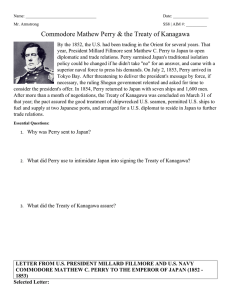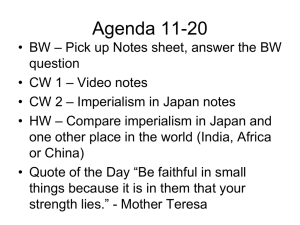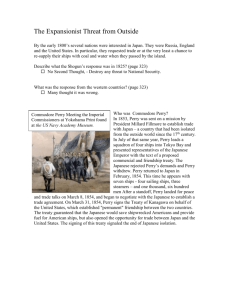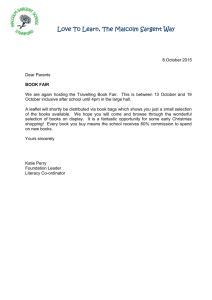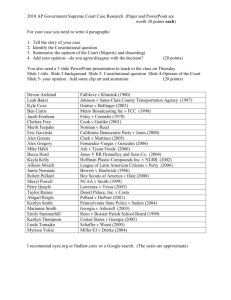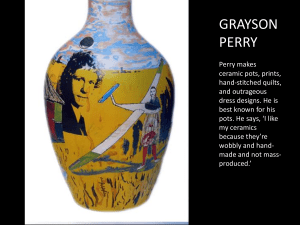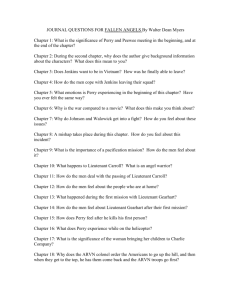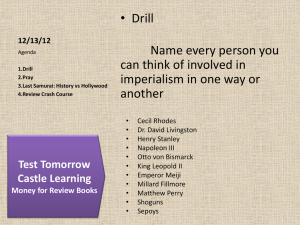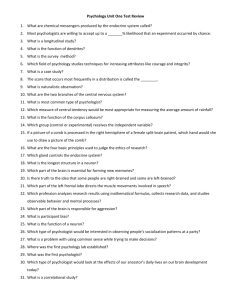The Arrival of Commodore Matthew Perry
advertisement
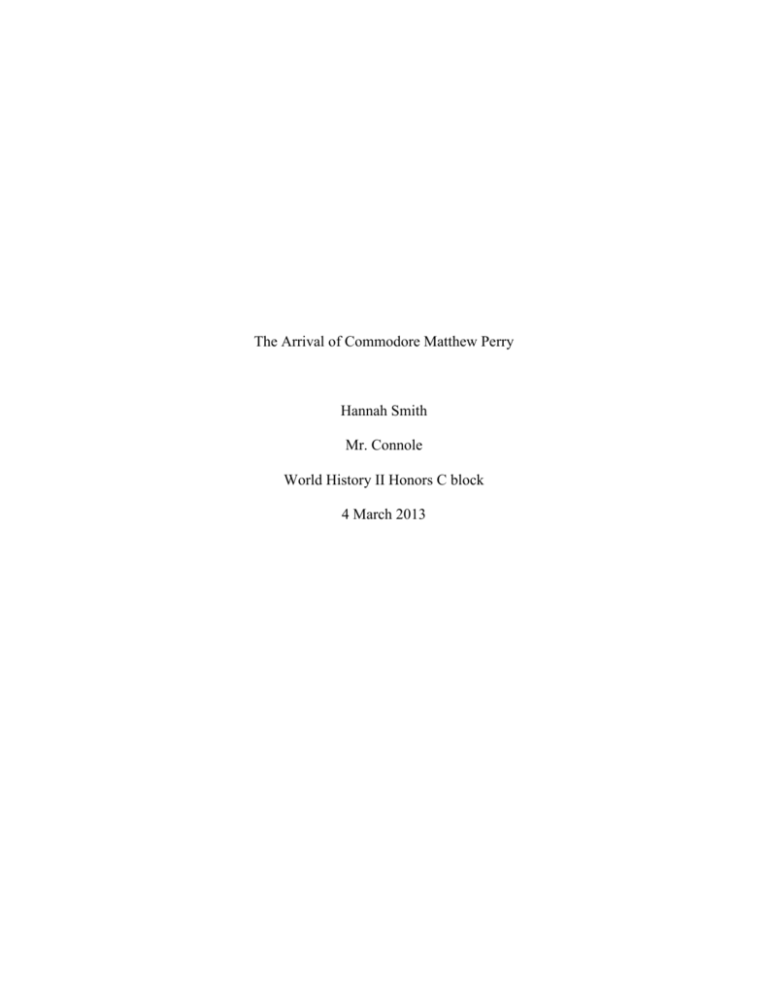
The Arrival of Commodore Matthew Perry Hannah Smith Mr. Connole World History II Honors C block 4 March 2013 Smith 1 The arrival of Commodore Matthew Perry to Japan signified a turning point in the foreign relations of the United States of America and Japan. Perry, a highly esteemed naval officer, led an expedition from 1852 to 1854 in order to stabilize trading rights (Dobbs 907). Powerful and determined, he insisted that the leaders of Japan accept the proposals from the United States (Heinrichs 46). The commodore arrived at Edo Bay, modern-day Tokyo, on July 8, 1853 with a fleet of warships sailing all the way from Norfolk, Virginia. At this time, the Japanese were ruled by the Tokugawa Shogunate, which enforced a closed-door policy with limited contact with the Western World and forced all incoming ships to port at the city of Nagaski (Dobbs 907). As one author states, “When Commodore Matthew Perry arrived…and refused to be diverted to Nagasaki, he precipitated a crisis. Perry demanded that Japan open itself to outside trade, provide refuges for damaged ships, and accept Western-style diplomatic relations” (“Narrative” 838). The impressive group of four ships and almost three hundred accompanying Americans added a great amount of intimidation that Perry used in his favor to influence the already weakened shogunate (“Narrative” 838-39). Perry, however, approached the Japanese government officials in a professional manner, polite and respectful of traditional culture. He successfully delivered the letter from the United States President Millard Filmore to the emperor of Japan, describing the increased trading contact between the two nations (“Narrative” 839-40). After stopping in China for other trading purposes, Perry returned to Japan this time with eight steamships. Although conducting a formal meeting, he used persuasiveness to make the shogunate accept the terms of the United States (Dobbs 907; “Narrative” 840). According to the Encyclopedia of Western Colonialism, “The United States and the Japanese soon signed Smith 2 an agreement, the Treaty of Kanagawa, on March 31, 1854, that reflected President Fillmore’s demands” (Dobbs 907). Commodore Matthew Perry later received a large monetary reward from the United States government for his efforts in Japan. Perry’s ability to command the new open-door policy has influenced the foreign affairs of Japan and the United States today (Dobbs 907; Heinrichs 46). Smith 3 Works Cited Dobbs, Charles M. “Perry, Matthew Calbraith.” Encyclopedia of Western Colonialism since 1450. Ed. Thomas Benjamin. Vol. 3. Detroit: Macmillan Reference USA, 2007. 907-08. Gale Virtual Reference Library. Web. 17 Oct. 2013. Heinrichs, Ann. Japan. New York: Children’s, 2006. Print. Enchantment of the World. “Narrative of the Expedition of an American Squadron to the China Seas and Japan.” History of World Trade since 1450. Ed. John J. McCusker. Farmington Hills: Macmillan, 2006. 838-40. Follett. Web. 17 Oct. 2012.

